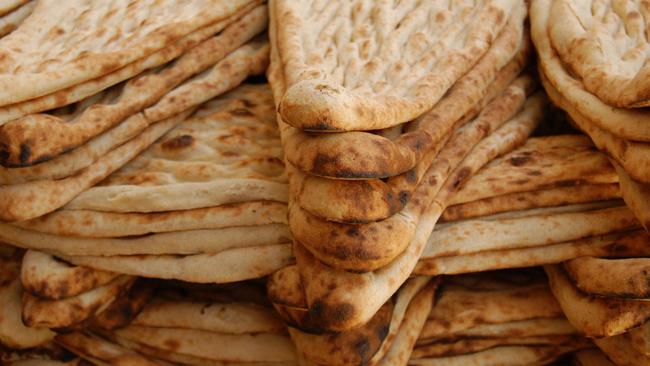Frankland River: a long way in every sense from Kabul
It started with a back-breaking session picking grapes with the local Afghan community — and ended with a brilliant feast.

The harvest moon had risen and, as we were about to learn, grapes are indeed harvested by moonlight. On a mate’s vineyard a long way from civilisation, his fancy new grape harvester – christened by someone as Star Wars meets the Dyson stick vacuum – worked throughout the night, a stroboscopic light show moving up and down above the verdant rows with elegant efficiency, extracting perfect berries and virtually no MOG (“matter other than grapes”). From dusk until dawn.
Lest you think there’s no romance left in fine wine, the next day we saw how bush vines are harvested. Bush vines grow without trellising, which means the bunches must be snipped by hand. Teams of pickers move through the rows, filling baskets which are then transferred to a bin. Let me tell you, it’s only romantic if you’re standing back pontificating on baume, acid levels and skin tannins. After an hour of bending and reaching into grape bushes looking for bunches to snip without drawing blood, a desk job seems pretty good.
Then we saw how the expensive juice is produced. If you’re trying the make the very best wine, only certain fruit from certain vines gets crushed – that part of the vineyard marked off by the winemaker with pink ribbons where nature has created soil structures that produce the very best fruit.
It’s a team sport. And picking teams tend to be, in my shallow experience, united nations affairs. My mate’s 2022 crew is no exception and the core – about six – is from the local Afghan community. Frankland River, population 367 and about four hours south of Perth, is a long way in every sense from Kabul.
After an hour of honest toil, we were ready for lunch. And that’s when picking contractor Hakeem’s wife Rahimi appeared in a nice new SUV and started setting up lunch for about 15 of us. An Afghan lunch, obviously. We sat on upturned picking baskets as Rahimi and her friend knocked up a marvellous salad of tomato, mild red onion, lettuce and cucumber. They shared bowls of beautifully acidic, light home-made yoghurt. We helped ourselves to scoops of palaw, or pilaf as we recognised it; mountains of cooked spinach flavoured with… something intriguing. A kind of red-spiced chicken curry. And – this is what grabbed me instantly – a tablecloth-sized piece of fabric used to transport a pile of huge naan flatbread.
It may have lost something in translation, but Rahimi’s recipe was as follows: flour, salt, water, oil and decades of practice. No yeast. I could start practising today and produce something like these skiffle-board sized discs of perfect, tan-dappled unleavened bread next decade. Maybe. Or go back next year to pick perfect grenache and eat a truly authentic Afghan feast delivered with humbling grace and generosity. Have we got a deal, Rahimi?



To join the conversation, please log in. Don't have an account? Register
Join the conversation, you are commenting as Logout